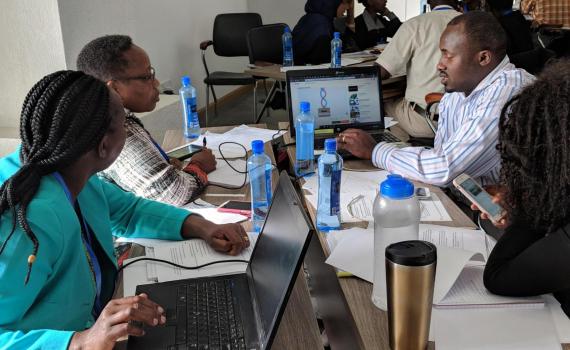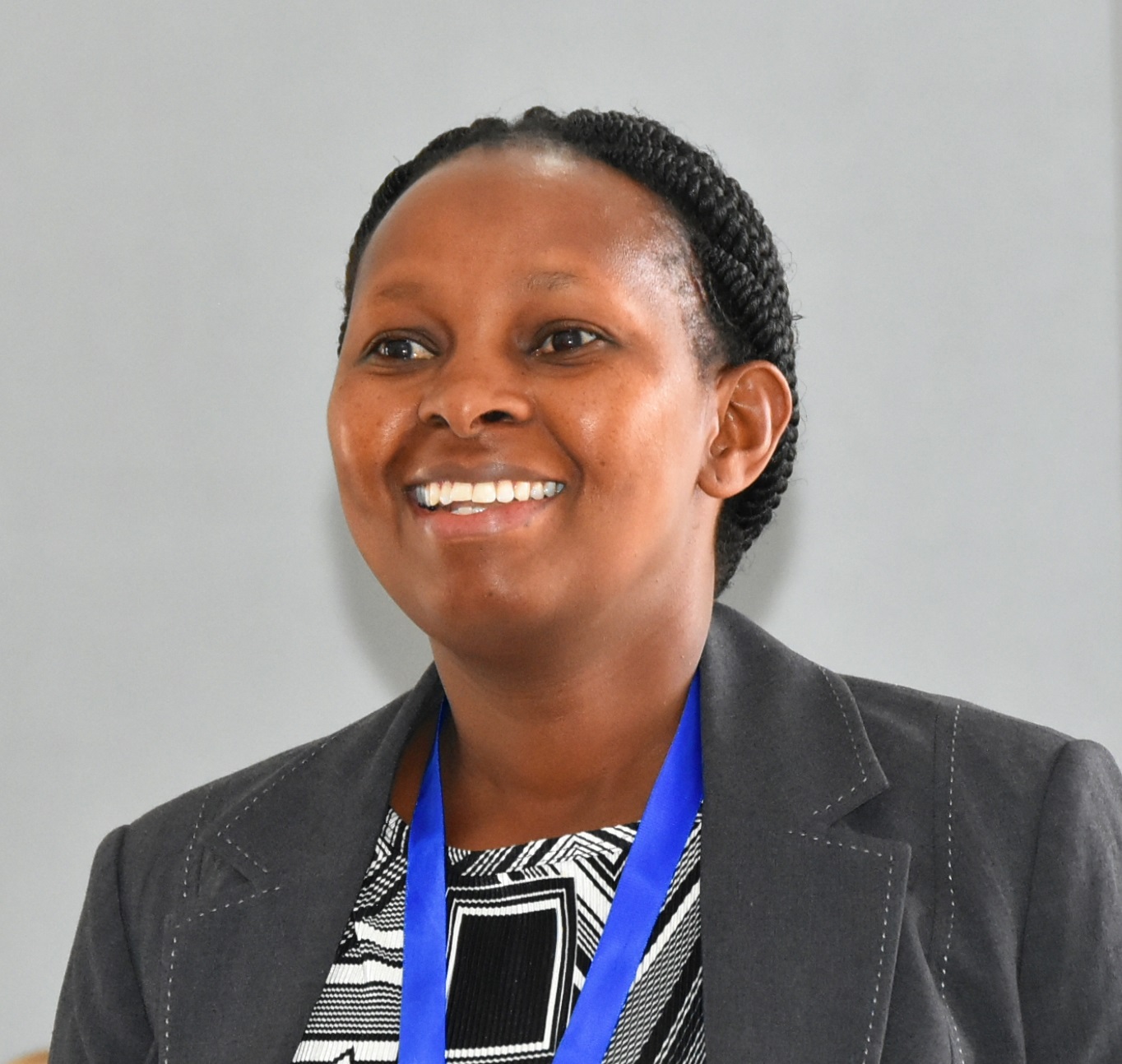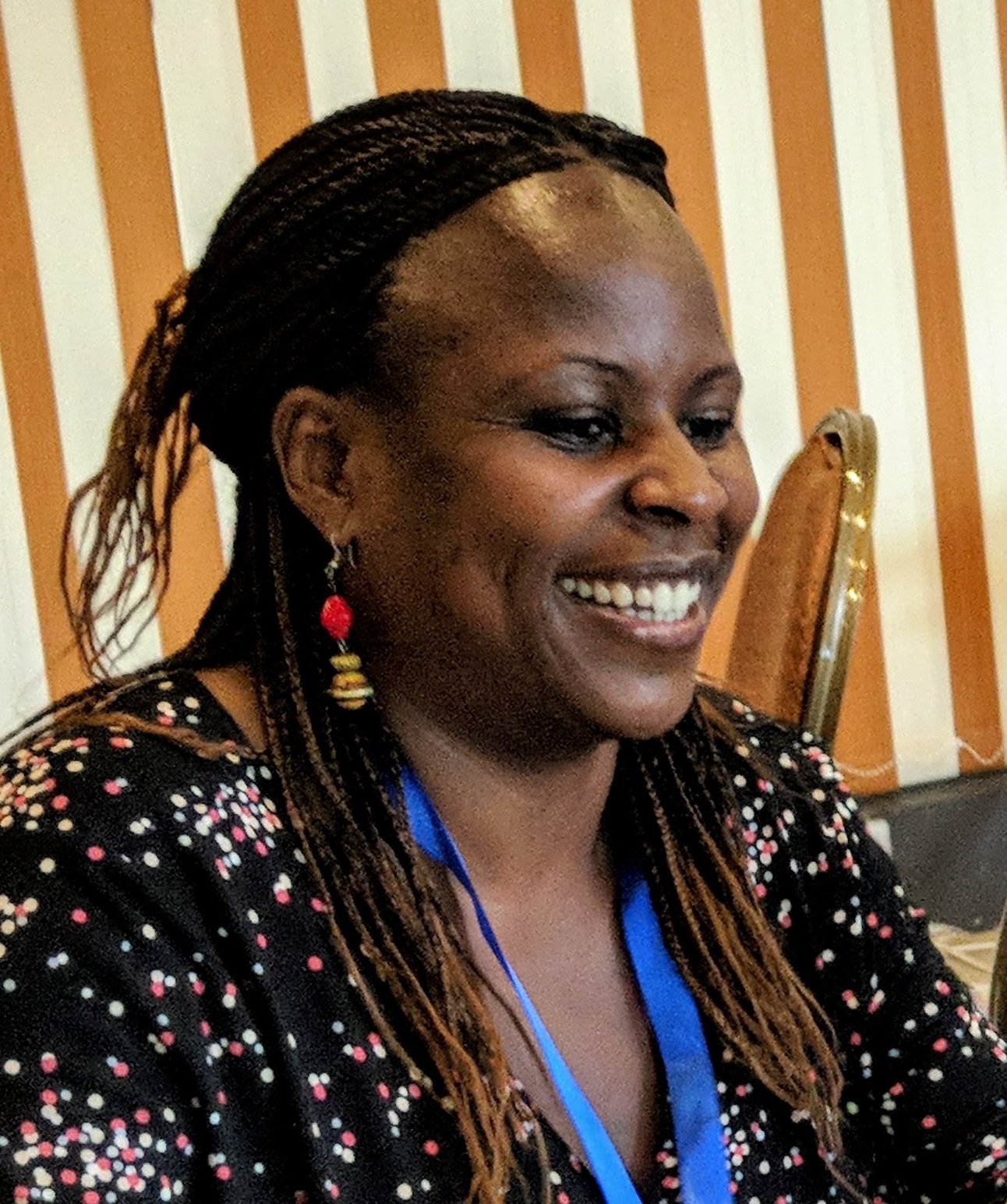
In 2018, the EIFL Public Library Innovation Programme (EIFL-PLIP) and the Kenya National Library Service (KNLS), which manages a network of 62 public libraries staffed by 600 people, entered into a partnership to strengthen continuous professional development of public librarians in Kenya. Through the partnership, the EIFL-PLIP team developed the training skills and subject knowledge of 19 public librarians and 12 ICT officers, positioning them to become expert trainers for their colleagues. Training of trainers - adult education and facilitation methods, curriculum design - was the core of the programme. Subject knowledge included a wide range of topics related to library management, including Design Thinking, introduction of new services and impact evaluation. Trainees also learnt Mobile Information Literacy and how to advocate for and communicate about new services. In 2020 the training programme came to an end. EIFL asked three of the newly-skilled trainers what they’ve been doing since the training.
MIRIAM MUREITHI, PRINCIPAL LIBRARIAN, KNLS THIKA PUBLIC LIBRARY
 “The EIFL training was very different from other training I have attended. Firstly, the method of delivery was participatory, not just trainer dominated. Secondly, the cascading. After being trained, we had to practise by cascading the training to our colleagues, with supervision and coaching from EIFL trainer. I had not done that before in the library profession. Thirdly, the feedback. After every practice session, the EIFL trainer would give feedback and this helped us to have deeper understanding and grow as trainers. I am now confidently training teachers at local schools on how to set up and manage school libraries.
“The EIFL training was very different from other training I have attended. Firstly, the method of delivery was participatory, not just trainer dominated. Secondly, the cascading. After being trained, we had to practise by cascading the training to our colleagues, with supervision and coaching from EIFL trainer. I had not done that before in the library profession. Thirdly, the feedback. After every practice session, the EIFL trainer would give feedback and this helped us to have deeper understanding and grow as trainers. I am now confidently training teachers at local schools on how to set up and manage school libraries.
“At Thika Public Library, I manage a team of 15 librarians. The training has built my confidence as a leader, and changed my approach in leadership. Before, I just used to demand improvements in my team, and tended to dwell on the weaknesses. The Leadership module has taught me how to identify and understand staff capabilities, focus on each person’s strengths and to bring out their creativity. I have also cascaded the Leadership training to other heads of departments and librarians. It is fantastic that I was able to train leaders who may have more skills and experience than I do.
“The training in Design Thinking has helped Thika Public Library to become more conscious about locally available resources. We now always think: ‘What can we do better? What can we do locally? What can we do with the available resources?’ This approach brings out ideas from the staff, and as a result I have been able to introduce new services and training programmes. For example, one of our librarians has sign language skills, and has introduced a sign language training programme in the library, for children and adults. The Kenyan sign language society is now partnering with us, to train adults in Sign Language
“And during the months we were closed due to COVID-19, the staff had the idea of using the time to improve the image of the library by painting the boxes where magazines for children are put. We bought the paint and brushes, and now we have very good-looking kinder boxes in white, red, blue, yellow and green.
“Originally, we were mostly doing basic ICT training for young adults who had dropped out of school for various reasons, in order to empower them to be able to access e-government services such as applying for a drivers’ licence and registering a business. The community learnt about the kind of training offered in the library and started enrolling in large numbers. This also started attracting new partners and a push to introduce new programmes. Some students from neighbouring universities requested training on data analysis. Now we are running a data analysis basic training course for them in partnership with Dalworth Organization, a Kenyan community-based organization. In partnership with the Ministry of Education, a qualified teacher comes to train the basic ICT courses. By the end of 2019 we had trained over 500 students in ICT and data analysis, and in March 2020 we had 202 graduates. We had 185 students enrolled for training to start in May 2020, but we had to cancel because of the COVID-19 pandemic.
“In the future, I am hoping everything will stabilize as it was before COVID-19. When the libraries open, we will be do more training. We will cascade the EIFL modules to other librarians and continue with current programmes, like the teacher-librarian training, data analysis and ICT. We will also be doing more Leadership training. I now have confidence that I can train on any area as long as I have content. I am reading to add new content all the time and to improve on my training skills.”
Caroline Ngacaku, Librarian, Head of KNLS Muranga Public Library
 “Immediately after completing the Mobile Information Literacy (MIL) module during the EIFL training of trainers (ToT) programme, my colleague James, who was also doing the EIFL course, and I cascaded the training to members of staff at Murang’a library. Then we added a two-day MIL module to the basic ICT skills course that we have been offering in the library. We have already trained about 300 people in MIL, which covers online privacy, ethical and secure use of social media, choosing and using apps, safe mobile money transactions, and how to recognize online fraud attempts.
“Immediately after completing the Mobile Information Literacy (MIL) module during the EIFL training of trainers (ToT) programme, my colleague James, who was also doing the EIFL course, and I cascaded the training to members of staff at Murang’a library. Then we added a two-day MIL module to the basic ICT skills course that we have been offering in the library. We have already trained about 300 people in MIL, which covers online privacy, ethical and secure use of social media, choosing and using apps, safe mobile money transactions, and how to recognize online fraud attempts.
“Mostly, it is teenagers who enrol, and the MIL course is ideal for them because many have recently left school and have just got their first mobile phone. We test the learners’ competency during the course, and at the end of the course we give them a small exam. We have been very satisfied with the results and I believe our young learners can pass on their knowledge to their family members.
“EIFL’s training is different. With other training and seminars, we would just summarize and report back to our colleagues. With the EIFL training, our responsibility is to cascade the training to the branch, using methods and content learnt in the course. I have cascaded several other modules from the EIFL training to Murang’a librarians - ToT, Design Thinking and Project Management.
“The ToT has been a real success. We have been taking part in a programme of rolling out e-readers to schools. Before, just one or two librarians would have moved from class to class to train the teachers and students to use the e-readers. But after the ToT module, all our librarians were confident to train. We now have nine librarians who are trainers at Murang’a!
“After we cascaded Design Thinking, the mindset at Murang’a library has changed. In the past, we used to sit back and think we knew what the users wanted. Design Thinking reminds us always to put the user first - to really think about and ask what they need. This is changing our relationship with the users. For example - every quarter we have a ‘customer interactive meeting’ with library users. In the past, it was talk, talk, talk. We were like lecturers, standing in front, seeming to have all the answers. Now we sit in the group, with the library users. We ask questions and listen - even to the ideas of the children. When we follow up, the library users feel proud and appreciated.
“Through EIFL, I have also conducted ToT with librarians in Zambia, and my Zambian learners have already led training. This was a very memorable experience - it showed me how the same practical training skills can be used in different countries. At home, COVID-19 has interrupted our schedule, because libraries closed and are not yet fully open. But once everything has settled down again, we will be cascading the training modules to other libraries. We can also train in other institutions in the future, beyond libraries. These are skills that can last our whole lives!”
JOAN NJOKI NJOGU, REGIONAL ICT OFFICER, BASED AT KNLS MERU PUBLIC LIBRARY
 “My role is to provide technical support at six KNLS branch libraries, Meru, Gatimbi, Mkomboni, Embu and Isiolo, Timau. I was happy with my daily technical tasks, but wanted to do more, and that is how I became involved in training.
“My role is to provide technical support at six KNLS branch libraries, Meru, Gatimbi, Mkomboni, Embu and Isiolo, Timau. I was happy with my daily technical tasks, but wanted to do more, and that is how I became involved in training.
“Before the EIFL programme, training was very difficult for me. Early on, I remember I was training a group of over 50 high school teachers who were taking a course for Microsoft Certified Educators. The teachers just sat there in the conference hall, staring at me, like robots. I could not believe it. I had the knowledge but the training failed because I was using technical terms that they could not understand. They became afraid of ICT, they even refused to take the online exam, and I could not sleep for shame.
“I also struggled with librarians. In 2017 all KNLS branches received computers for the public to use. I had to train librarians at the six branches to integrate ICT into their daily work, and to help library users with the computers. But many of the librarians were technophobes, and they just saw me as a young girl trying to tell them what to do.
“In 2018 I attended the first two-day EIFL ‘training of trainers’ workshop. I listened very attentively, learning many facilitation techniques for adult learners, and especially noting points about training using layman’s language, because I knew what my problems were.
“Since that first training I have trained many different kinds of people. One of the first things I did was to design a course combining basic computer skills with CV writing and interview skills, and provide this training to a group of 61 students. It was a success. At KNLS Gatimbi branch, and here at KNLS Meru, I have trained farmers and youth in smart farming (intensive farming using a small piece of ground). I am training a group of 15 senior citizens who come to the library for MIL classes, teaching them how to use their phones securely for financial transactions so that they do not have to queue at banks - and eight of them have bought smartphones.
“On top of that I have an outreach programme. I go to the prison where I train 50 women inmates in ICT. At an adult learning centre I train another 50 adults who have dropped out of school. I also work with teenage mothers, providing training in sexual and reproductive health, basic ICT and - very important - online security because they are vulnerable to bullying and exploitation via social media.
“Nowadays, when I train my colleagues in Meru Public Library in ICT skills, I always make sure there is someone present from one of the other branches, who can cascade the training in their library. The heads of those libraries see me differently now. They trust me, and call me for help when they need it.
“I can truly say the EIFL course has transformed how people view the library. More people, including professionals, are joining because they have heard we are offering these courses. And vulnerable people like the teenage mothers and prisoners can see that someone really cares about them, and does not judge them. It gives us great satisfaction to see we are changing people’s lives. And my role has changed - now, when I pass people in the street, they greet me, ‘Hallo Teacher!’”
SHARE / PRINT







